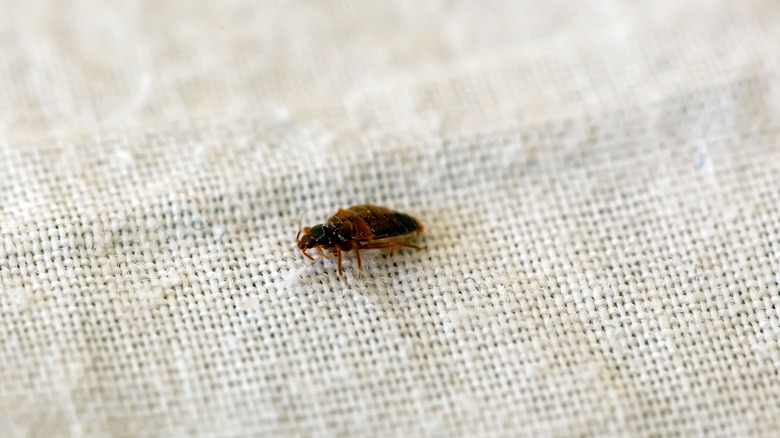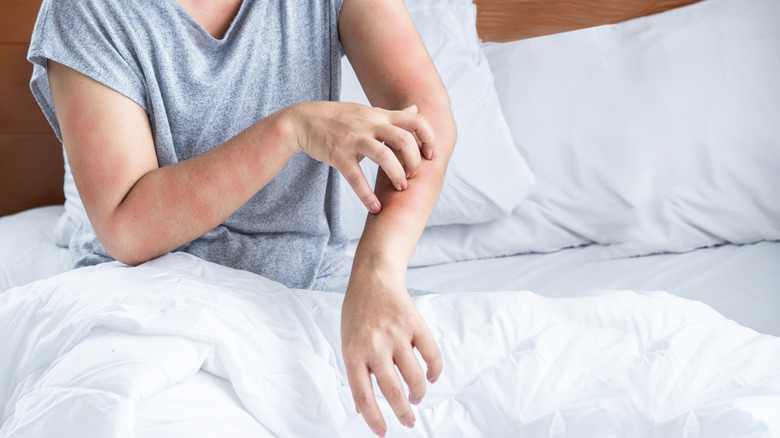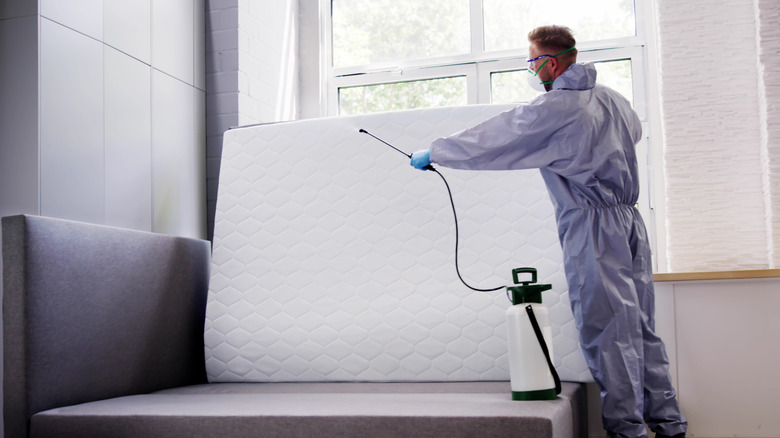Bed Bug Infestations In New Jersey Are Out Of Control - Here's What You Can Do About It
The phrase "sleep tight, don't let the bed bugs bite" isn't popular parlance just because it involves a fun rhyme. Bed bugs have been a fixture of the human experience since early recorded history. Records from ancient Greece show contemporaries of Aristotle writing about bed bug infestations, so people have long dealt with public health consequences like allergic reactions and secondary infections from bites by these bloodsuckers.
Concerns about bed bugs continue to this day: The crowd-sourced review site Yelp aggregated search data for its 2025 "Infestation Index" and found U.S. residents seeking out exterminators rose 53% year-over-year for the period from May 2024 to April 2025. The top city for searches? Atlantic City, New Jersey.
This isn't an unprecedented conclusion. News circulated the web in 2024 that New Jersey was voted one of the worst places for bed bug infections. While the ranking was disputed by public health experts for being similarly based on internet searches rather than tangible measurements, it is true that Rutgers University had a very high-profile battle with bed bugs in the dorms of Jameson Hall. Bed bugs may not transmit diseases, but they are pests whose very presence can take a toll on your mental health, leading to increased anxiety and insomnia. Luckily, there are ways to permanently get rid of bed bugs with an appropriate degree of pest control.
Why states like New Jersey might be seeing a rise in bed bug populations
Yelp is not the only place to confirm a seeming rise in the presence of bed bugs throughout the United States. The U.S. Environmental Protection Agency points to recent increases in infestations being a result of more travel, increased pesticide resistance, and a lack of knowledge about pest control.
As for why New Jersey specifically tops so many informal rankings? It's hard to say. Pest control company Terminix has previously reported New Jersey having among the biggest populations of mosquitos in the States, which can be seen as a direct result of climate change leading to hotter environments and higher tides — thus creating longer active mosquito seasons.
Bed bugs are harder to pin down. They are primarily nocturnal critters that are small enough to hide in all the crevices of your furniture or walls, while being able to live in a variety of mediums such as paper, fabric, stone, metal, plaster, and more. Bed bugs might even be lurking in your wooden furniture. The most common way for bed bugs to spread is via travel: unsuspecting vacationers carrying them in the folds of their clothes and luggage, or transporting furniture across long distances. There's nothing to say New Jersey is at a worse risk of bed bug infections for any particular reason (in fact, infestations in Paris, France have similarly made international news over the last few years).
How to deal with bed bug infestations once you have them
Whether you find yourself dealing with bed bugs in New Jersey, France, or any other part of the world, there are ways to handle these annoying pests. Some preventative measures can be taken to keep them out of your bed: Use plastic mattress covers and make sure none of your bedding is able to touch the floor. Seal any cracks in the wall and regularly clean up clutter or clothing piles to give the bugs fewer hiding places. Bed bugs, unlike mosquitos, are very susceptible to heat; hot, soapy water and heated drying can kill bed bugs in your sheets, curtains, or clothing, and you can use steam treatments on your furniture to a similar effect.
Vacuuming regularly is also an effective way to break apart bed bug populations, just make sure you properly seal the vacuum bag before throwing it away to prevent further infestations. In fact, there are other mistakes that people make when dealing with bed bugs: waiting too long to deal with the problem, or using sketchy online DIY remedies like rubbing your furniture with rubbing alcohol. Ultimately, these pests are squirrelly and will hide out for ages without even having to eat. Your best bet for dealing with an infection, whether or not you're in New Jersey, is to call a professional for a pest control consultation.


